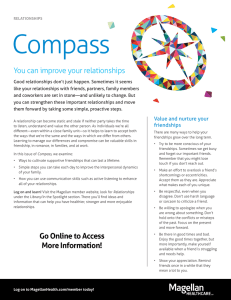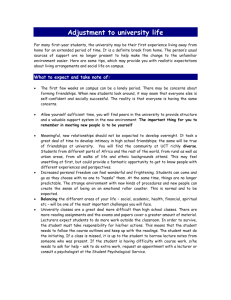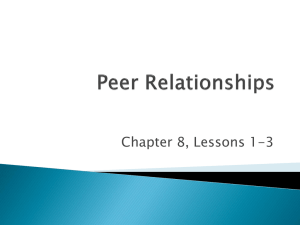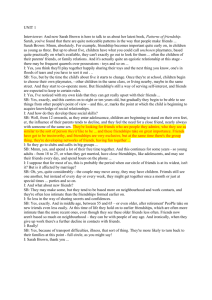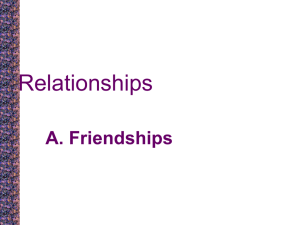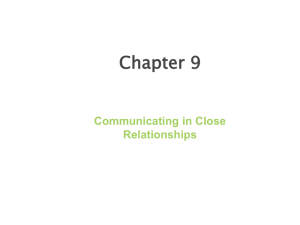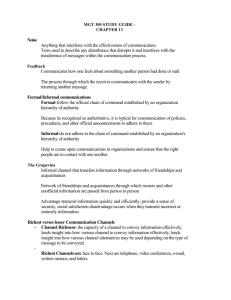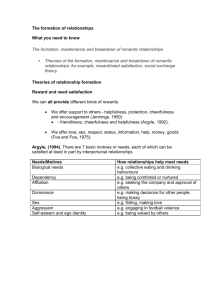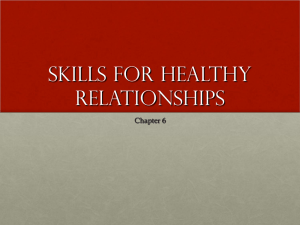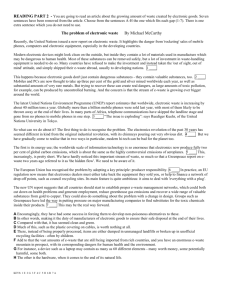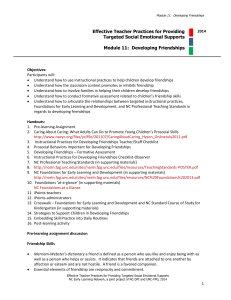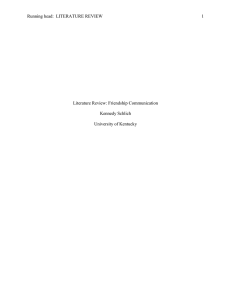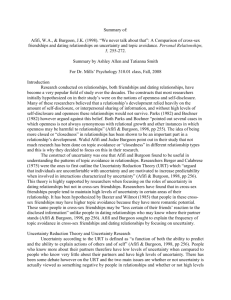Counselor`s Corner
advertisement
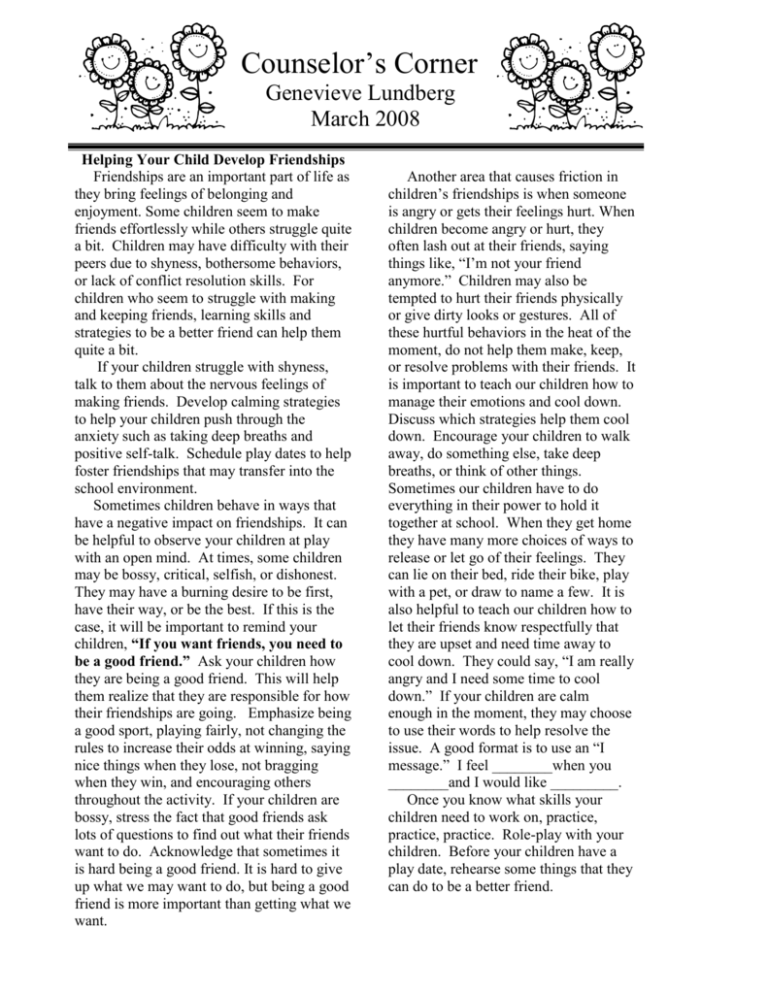
Counselor’s Corner Genevieve Lundberg March 2008 Helping Your Child Develop Friendships Friendships are an important part of life as they bring feelings of belonging and enjoyment. Some children seem to make friends effortlessly while others struggle quite a bit. Children may have difficulty with their peers due to shyness, bothersome behaviors, or lack of conflict resolution skills. For children who seem to struggle with making and keeping friends, learning skills and strategies to be a better friend can help them quite a bit. If your children struggle with shyness, talk to them about the nervous feelings of making friends. Develop calming strategies to help your children push through the anxiety such as taking deep breaths and positive self-talk. Schedule play dates to help foster friendships that may transfer into the school environment. Sometimes children behave in ways that have a negative impact on friendships. It can be helpful to observe your children at play with an open mind. At times, some children may be bossy, critical, selfish, or dishonest. They may have a burning desire to be first, have their way, or be the best. If this is the case, it will be important to remind your children, “If you want friends, you need to be a good friend.” Ask your children how they are being a good friend. This will help them realize that they are responsible for how their friendships are going. Emphasize being a good sport, playing fairly, not changing the rules to increase their odds at winning, saying nice things when they lose, not bragging when they win, and encouraging others throughout the activity. If your children are bossy, stress the fact that good friends ask lots of questions to find out what their friends want to do. Acknowledge that sometimes it is hard being a good friend. It is hard to give up what we may want to do, but being a good friend is more important than getting what we want. Another area that causes friction in children’s friendships is when someone is angry or gets their feelings hurt. When children become angry or hurt, they often lash out at their friends, saying things like, “I’m not your friend anymore.” Children may also be tempted to hurt their friends physically or give dirty looks or gestures. All of these hurtful behaviors in the heat of the moment, do not help them make, keep, or resolve problems with their friends. It is important to teach our children how to manage their emotions and cool down. Discuss which strategies help them cool down. Encourage your children to walk away, do something else, take deep breaths, or think of other things. Sometimes our children have to do everything in their power to hold it together at school. When they get home they have many more choices of ways to release or let go of their feelings. They can lie on their bed, ride their bike, play with a pet, or draw to name a few. It is also helpful to teach our children how to let their friends know respectfully that they are upset and need time away to cool down. They could say, “I am really angry and I need some time to cool down.” If your children are calm enough in the moment, they may choose to use their words to help resolve the issue. A good format is to use an “I message.” I feel ________when you ________and I would like _________. Once you know what skills your children need to work on, practice, practice, practice. Role-play with your children. Before your children have a play date, rehearse some things that they can do to be a better friend.
